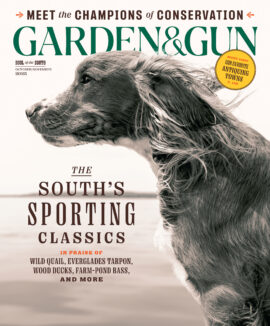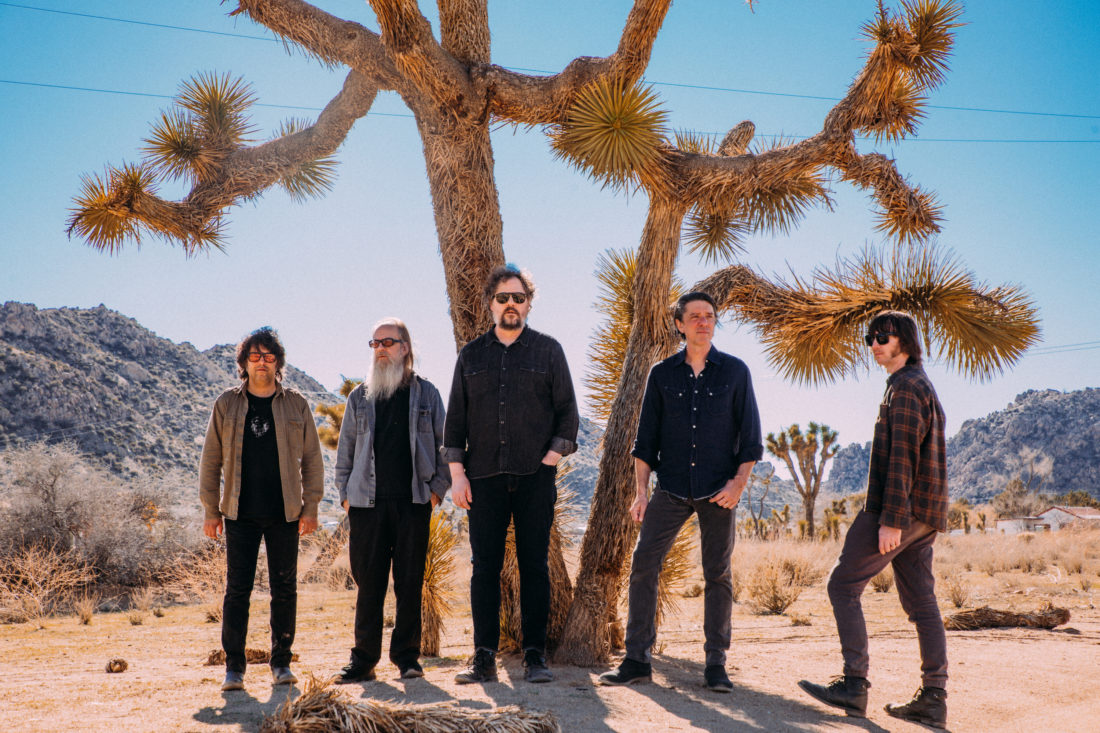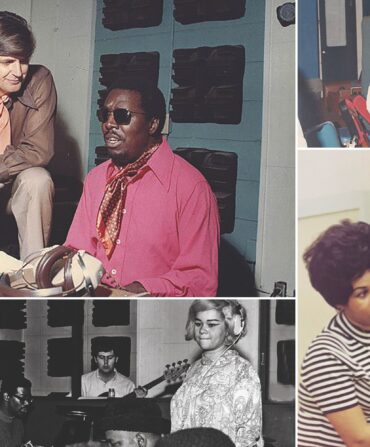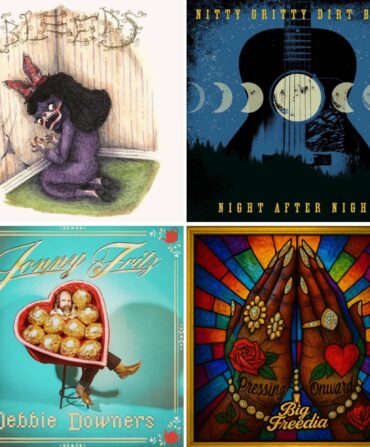Last summer, the members of Drive-By Truckers gathered for the first time in eighteen months at a studio in Athens, Georgia, to prepare for an upcoming tour. As a band that’s played nearly three thousand shows during its twenty-five-year career, the Truckers don’t rehearse per se, but cofounders Patterson Hood and Mike Cooley each had new songs to try out for an eventual new album. As the three days sped by, the freshness and rekindled chemistry of playing together again was impossible to ignore, and soon the band had recorded its fourteenth studio album, Welcome 2 Club XIII, which Garden & Gun is proud to premiere.
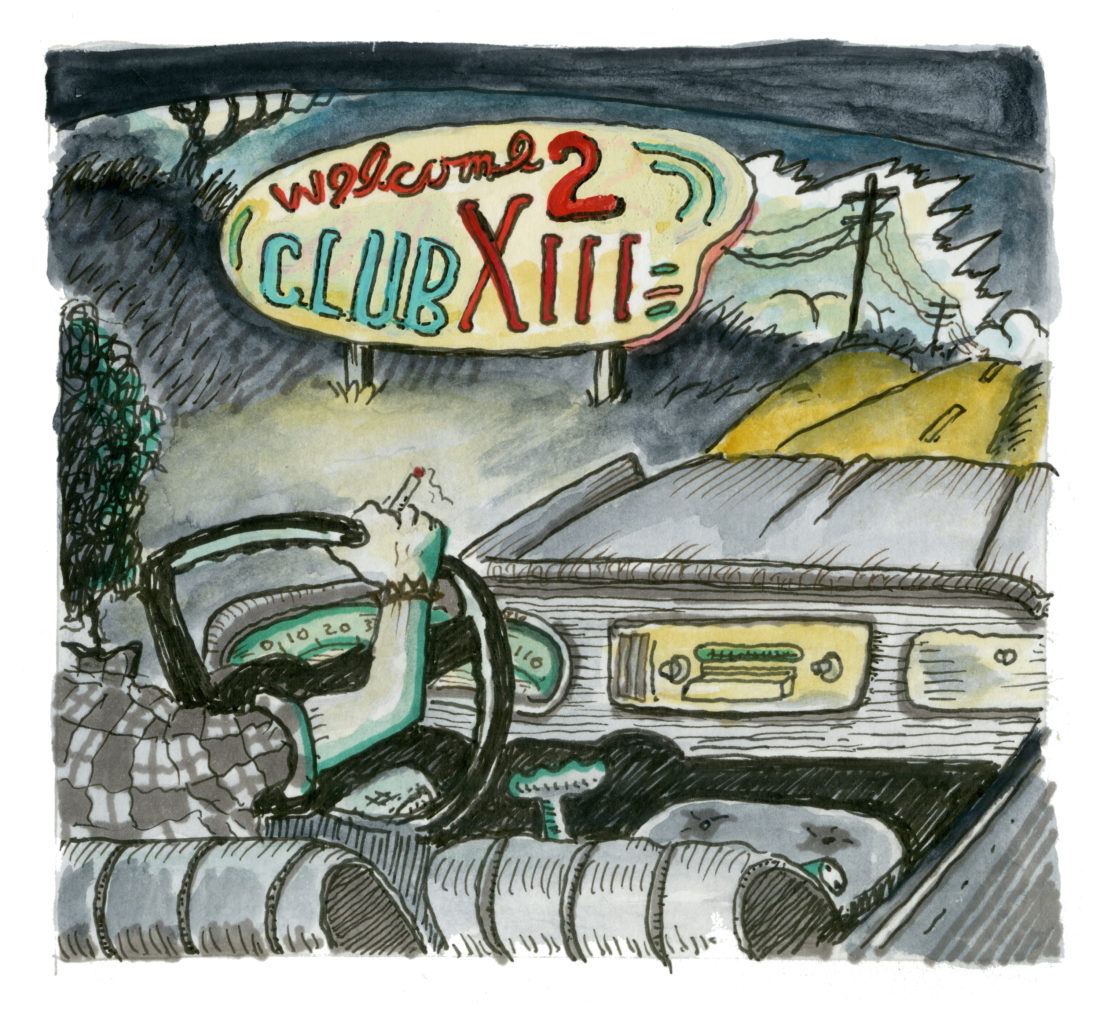
Recorded live, the album sizzles with the Truckers’ well-earned grit and intensity. It’s also the most personal album of the band—rounded out by longtime drummer Brad Morgan, guitarist Jay Gonzalez, and bassist Matt Patton—since 2003’s Decoration Day. The title is a nod to the bar where Hood and Cooley cut their teeth as the pre-DBT band Adam’s House Cat, and songs like the epic opener, “The Driver,” capture the mood of Hood as a college dropout, driving around the Muscle Shoals area for hours, listening to punk rock and plotting a way to get out of town. It’s thrilling, wistful, heart-pounding, and fist-pumping stuff, everything that makes the Truckers one of America’s most enduring rock bands.
Listen to the album below, and read on as Hood recalls his early days in the Shoals and lets us in on the secret to his and Cooley’s three-decade-long partnership.
Welcome 2 Club XIII is out this Friday, June 3, and available for pre-order here.
What was a night at Club XIII like?
The building was a plain, metal-walled concrete slab building with industrial carpet and disco lights. [There was] penny beer and live music a few nights a week for a crowd that probably preferred the DJ and didn’t want to hear our rag-tag post punk band with my belligerent lyrics and “bad voice.” We’d play, and people would hang outside smoking in the parking lot until we were done, then crowd the stage when some hair metal cover band took over.
What part of the Shoals has stayed with you after leaving?
It’s complicated. It’s almost unrecognizable from the place I grew up, and honestly it was radically different then from the legendary place where my dad [David Hood, bassist for the Shoals backing band the Swampers] made all those classic records. Back in the ’60s it was this sleepy Bible Belt town where this musical miracle occurred. It was almost a secret society then, as they really didn’t want the locals to know too much of what they were doing, so it all happened under the radar.
In 1982, the month I graduated from high school, the Ford plant shut down, and the town went from blue-collar working class to deeply economically depressed. Around that time the music industry crashed and burned, and many of the studios closed and a lot of the musicians left town. My dad was one of the holdouts who refused to leave. I stayed until 1991, but it was a terrible place to try to do what Adam’s House Cat was trying to do, and I was often angry and rebellious about it, which did not endear me to the locals. My dad’s partner, Jimmy Johnson, literally threatened to whip my ass over [one of my first songs] “Buttholeville.” We made peace years later. I wrote “Ronnie and Neil” [from the Truckers’ classic 2001 album, Southern Rock Opera] partly as a peace offering to him. Now there’s a small but dedicated and talented younger music scene, and a lot of local pride about the musical history there. I love going home to visit and getting some Bunyan’s BBQ.
The new album is a shift from the more topical content of the last two, The Unraveling and The New OK. Was that a conscious decision?
It just happened that way. The Unraveling was, on my end, written in response to conversations I was having with my kids, trying to explain the terrible shit that kept happening. [Songs like] “The New OK” and “Watching the Orange Clouds” were written during the lockdown and the federal occupation of my adopted hometown of Portland, Oregon, in the summer of 2020. I’m fiercely proud of those albums and those songs, but it was time to do some other things.
The new album has incredibly vivid memories of your time growing up in Muscle Shoals.
I grew up kind of rural, about fifteen or so miles from town where there wasn’t a lot to do. I was always obsessed with driving. I learned to drive at 12, a stick shift, and at age 8, I could have told you my sixteenth birthday would fall on a Monday. I spent many nights of my youth just driving around, often late and by myself, just like the new song “The Driver.” Many of the moments of clarity that deeply influenced my life occurred during late-night drives—dropping out of college and forming Adam’s House Cat in the fall of 1985 while driving around listening to The Replacements’ Tim album. Years later with the Truckers, we’d hit the road with a vengeance, playing 250 dates a year, touring in vans, and sleeping on floors at people’s apartments and houses. It kind of defined who we were and what we became. At the same time, anyone who spends a lot of time on the road sees some terrible shit from time to time, horrendous wrecks and near-death experiences. It’s all in that song. Our band has long written about dualities. The things that make you who you are and make life worth living can kill you. That’s kind of the defining duality of this album. “The Driver” sets that stage for the entire album. I knew when I wrote it that it would be the first song.
Margo Price and R.E.M.’s Mike Mills contribute backing vocals. How did those collaborations come about?
Margo is so incredible. She and her husband, Jeremy Ivey, who is awesome in his own right, are both on “Forged in Hell and Heaven Sent.” Jeremy plays harmonica, and our friend Scott Danbom from the wonderful Texas band Centro-matic plays fiddle. Cooley and I shared a dressing trailer with Margo and Jeremy at the Newport Folk Festival last summer, and I asked them if they’d play on our new album. And we’re all huge R.E.M. fans. I literally learned to sing backup vocals trying to copy what Mike Mills did on R.E.M.’s Lifes Rich Pageant in 1986. I’d drive around all that summer singing along to his parts. We became friends through the years of me living in Athens. He’s a sweetheart, and I’ve always dreamt of having his voice on one of our albums.
You and Cooley have more than twenty-five years, fourteen albums, and thousands of shows together. What’s the secret to your longevity?
Cooley and I are like brothers. Back in the ’80s we fought like cats and dogs, but even then we knew there was a great musical chemistry. In later years we’ve become quite close. As for the secret, Cooley and I sometimes say the most horrendous things to each other as a personal greeting. I can’t even repeat some of the things we call each other to our faces as terms of endearment. I think that lets off a necessary steam and precludes any buildup of bad tension. It’s not like either one of us holds back from expressing ourselves. Partner-wise, I’m the luckiest guy in the world.

